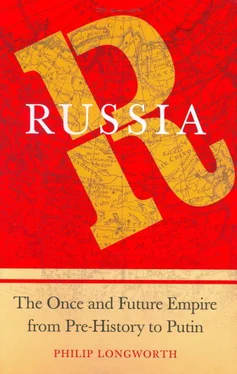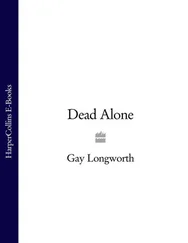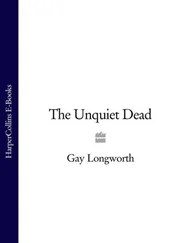So the connection between economic power and politics became ever closer. Viktor Chernomyrdin, who bought a major stake in the huge natural-gas enterprise Gazprom, which he had run, was to serve twice as prime minister. He also made a personal fortune estimated at $5 billion. This was hardly surprising given that Gazprom’s value grew from $250 million in 1993/4, when it was auctioned, to $40,483 million by 1997. 12Others made similar killings. The new billionaires, on visits abroad, wore innocent expressions: they admitted to having occasionally done things normally regarded as wrong, but claimed they had had no choice. The law was not always clear, and they had had to protect themselves. They were playing a game not of their making, and played it according to the uncertain rules of the time. 13
Russia had suffered almost as serious a decline in international standing as it had economically. Its strategic position had been weakened by the loss of empire, and its rival was exploiting its advantage. Disregarding undertakings it had given to Gorbachev, who had represented a state which no longer existed, the United States decided that NATO should after all expand eastward and, having effectively excluded Russia’s navy from the Black Sea, it declared the Caspian to be a region affecting vital US interests — an indication that it was prepared to intervene there militarily The Caspian was strategically important. It was a hinge between Russia, the Caucasus and Central Asia, and it contained considerable oil and natural gas deposits. But Russia’s interests there were no less vital than America’s, and Yeltsin was determined to preserve them. These circumstances help to explain the war in Chechnya which began in December 1994 and continued into 1996.
This war has often been explained in terms of a classic struggle between an imperial power (Russia) and a new nation striving to be free (the Chechens). This view derives in large measure from the propaganda issued by Chechnya’s president of the time, Djokar Dudaev. Dudaev beat the nationalist drum. Yet his own legitimacy as president was questioned and his declaration of independence, like his commitment to the Koran as the basis of his regime, breached the 1993 Constitution of the Russian Federation of which Chechnya was a part. However, they brought him financial aid and volunteers from Afghanistan and Saudi Arabia who saw him now as a potential leader of jihad. Dudaev’s regime was corrupt, associated with organized crime in both Chechnya and Russia, and less than popular among the Chechens themselves. A leading Western historian of post-Soviet Russia has gone so far as to call Dudaev’s rule ‘a disgrace to minimal standards of political decency’. 14But there were other dimensions to the coming struggle in Chechnya.
Chechnya was a transit centre for oil from western Siberia as well as the Caspian, and Dudaev and his associates were reselling a great deal of it abroad for foreign currency to their own considerable profit and that of their Russian friends. Chechnya was formally a semi-autonomous province of Russia, so the trade was illegal. The losses to the exchequer were serious, yet they did not precipitate Yeltsin’s decision to intervene militarily in Chechnya. Rather it was another, more traditional, form of Chechen piracy: kidnapping. In May 1994 a Chechen war band descended on the quiet resort town of Mineralnye Vody not far to the north. They proceeded to kidnap busloads of Russians and hold them to ransom for several million dollars. Security forces eventually succeeded in thwarting the attempt, but meanwhile a storm of outrage had been raised in Russia. In any case the Kremlin was becoming concerned that Chechnya might become a base for militant Muslim fundamentalism, and so in August the Kremlin decided to move troops in and take Dudaev out.
It was easier said than done. Despite their tanks and helicopter gunships, the Russian forces were unprepared for such a conflict. Too many raw recruits were used, and they suffered heavy casualties. The war was dirty, and the government deserved the bad press it got both at home and abroad for the cruelties inflicted on the Chechens. However, the atrocities were by no means one-sided. 15The insurgents fought viciously, slitting the throats of Russian prisoners they had taken in view of cameras, and the army responded as viciously. The army eventually secured the ruins of Chechnya’s capital, Grozny, but the war had become unpopular in Russia. Then in June 1995 a Chechen commander, Shamil Basaev, hitherto a political rival of Dudaev and reputed to have fought alongside the mujahidin in Afghanistan, penetrated the town of Budennovsk in southern Russia with a band of guerrillas. After a shoot-out resulting in over a hundred deaths, he and his men occupied the local hospital, taking patients, staff and visitors hostage. This crisis brought Prime Minister Chernomyrdin to the scene and the negotiations were televised. Most of the 1,600 hostages were released, but the guerrillas were allowed to withdraw to Chechnya taking the rest with them, and Russia’s premier was exposed to public humiliation.
If 1995 had been disappointing, 1996 was hardly better. Russia’s gross national product fell by 6 per cent that year — the fifth consecutive year it had fallen. Total production was half of what it had been in 1990, and the government was able to collect only 65 per cent of the taxes due to it. In 1988-9 it had withdrawn Soviet forces from Afghanistan, but now, seven years later, Russia had commitments there again, backing at least one faction in the north; the war in Chechnya ground expensively on; and NATO proceeded with its plan for eastward expansion to Russia’s frontiers. Having received no pay for five months, the miners of Vorkutka finally went on strike; Russia was forced to conclude an agreement with France, undertaking to compensate the descendants of those who had invested in Russian bonds since 1830; the police registered 574 contract killings, of which only 64 were solved; and the Vatican, egged on by Cardinal Ratzinger, launched a missionizing campaign to give desperate Russians the consolation of the Catholic Church. 16There were, it is true, some more promising developments. Inflation was cut to 22 per cent a year, and the tax police became more aggressive in pursuing defaulters; the state’s traditional money-spinner, the liquor monopoly, was restored; and several Central Asian states drew closer to Russia for fear of the Taliban. As in the early seventeenth century, the Catholic missionizing campaign met with obdurate, though less violent, resistance, and public opinion began to call for the state to reassert itself. 17
Since it was also an election year, policy sails were trimmed accordingly. The loss of an entire armoured regiment, ambushed in a mountain pass by Chechen guerrillas led by an Arab incomer called Khattab, 18hastened a resolution and in April 1996 the war was brought to an uneasy end. Dudaev himself was killed by Russian special forces on the last day of that month. The following January Asian Maskhadov was elected to replace him. But he proved unable to control either the Muslim fundamentalists organizing for war or the Chechen gangs, whose kidnapping targets soon included schoolchildren and British communication workers. Maskhadov subsequently accused Boris Berezovskii of abetting the kidnappers by arranging ransom payments to them. Whether this allegation was true or not, Berezovskii’s contacts fitted him for the role, 19and he was also to play a key role in Yeltsin’s re-election.
Despite growing indifference to the democratic process, opinion polls suggested that the President’s chances were poor, and so he thought of postponing the election. The Chechen war had brought no glory; the scandalous shares-for-loans scheme had necessitated the dismissal of Ana-tolii Chubais, the key official in charge of the privatization programme; and Yeltsin’s own health was deteriorating. His drinking problem became all too obvious on an official visit to Germany, and he was developing serious heart problems. Nevertheless, he had a small number of very powerful political helpers, all of them beneficiaries of privatization, and all of them terrified that a resurgent Communist Party might gain an electoral victory and destroy their business empires. Berezovskii brought them together to fund Yeltsin’s re-election campaign; Chubais was drafted in to be campaign manager, and Yeltsin’s daughter was included in the committee to ensure ready communication with the President’s office. 20
Читать дальше





![Stephan Orth - Behind Putin's Curtain - Friendships and Misadventures Inside Russia [aka Couchsurfing in Russia]](/books/415210/stephan-orth-behind-putin-s-curtain-friendships-a-thumb.webp)





